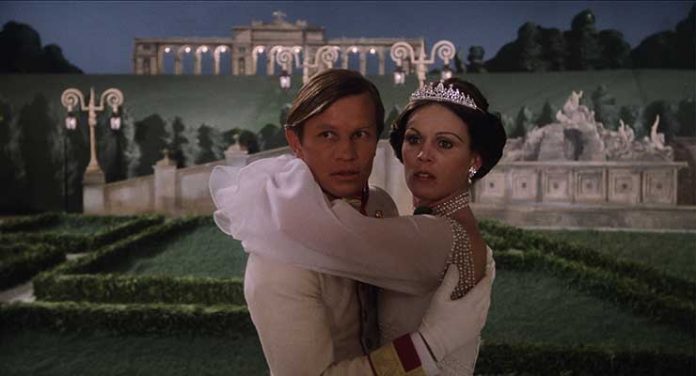![Fedora [Masters of Cinema] Blu-ray + DVD Combo Pack Packshot](https://v8i2j3k6.delivery.rocketcdn.me/wordpress/wp-content/uploads/2016/09/fedora-moc-uk-blu-ray-post-insert.jpg 200w, https://v8i2j3k6.delivery.rocketcdn.me/wordpress/wp-content/uploads/2016/09/fedora-moc-uk-blu-ray-post-insert-78x100.jpg 78w)
Wilder, alas, was not wholly successful at turning Fedora into the mirror on his industry he intended it to be. The film with its old-style Hollywood aesthetic of lavish sets, melodrama and syrupy romance was definitely out-of-place with the new Hollywood directors putting out gritty and big budget fare like Star Wars, Taxi Driver, and Jaws. The film, ironically, flopped, with audiences missing the point entirely. It wasn’t just the physical beauty and youth of the film’s protagonist that Wilder was warning audiences would one day be rejected once it had grown old, but in fact the entire style of artistic endeavor.
[envira-album id=”92695″]
The Video
This 1080p AVC transfer to Blu-ray is taken from a German 2K restoration that was done from the original 35mm camera negatives. The film looks rather good here taking its age and the artistic intent and style of the era into account. There is some softness, but for the most part we get a lot of detail and texture, good depth of field, and natural colors.
The Audio
The LPCM 2.0 monaural soundtrack is surprisingly punchy in the midrange and conveys the lavish film score rather well. Dialogue is clear, but there’s only so much one can do with a 1978 analogue, monaural film soundtrack.
The Supplements
- Deleted Scenes (1.85:1; 1080p/24; 00:12:49)
- Restoration Demo (1080p/24; 00:04:03; German)
- Booklet featuring a new essay by film scholar Neil Sinyard, a new essay by critic and filmmaker David Cairns, a vintage piece on the film’s production and archival imagery.
The Final Assessment
Fedora has good elements and in another time and place with the proper studio system behind it, it may have been a classic during the Golden Age of Hollywood, but in 1978 it looked and felt out of place, and it still does today. It’s a film made by a director making a statement in an era where he no longer feels comfortable, and it shows.
Be the first to leave a review.

